No New Auto Tariffs For Japan, Probably

The United States and Japan have signed a limited trade deal that’s been simmering for some months now. President Donald Trump has been eager to secure a place where American farmers can send their goods now that the trade war with China has diminished American dealings with that market. In return, Japan wanted assurances from the U.S. that it will not impose any new automotive tariffs, as cars remain one of its chief exports.
While the island nation didn’t get the guarantee in writing, Prime Minister Shinzo Abe claims he received a verbal promise. This is to be the first part of a broader trade deal between the two countries.
Under the preliminary deal, Japan will reduce tariffs on roughly $7.2 billion of American farming goods, including items like corn, wine, pork, and beef. Some items, like dairy products, do not receive protections, however.
While important for American farmers, especially after the United States’ abandonment of the Trans-Pacific Partnership, the deal is really a preamble for follow-up deals more concerned with industrial goods. In fact, Trump brought up the automotive sector more than once when announcing the accord at the White House on Monday.
“I said to Prime Minister Abe, ‘Please, we need auto plants.’ And I said that right at the beginning when I first met with him, and immediately liked him a lot. And they’ve really produced. They’re doing a lot of plants, not just auto. Many, many — many, many plants and factories are being built in the United States by Japan and Japanese companies,” the president said. “These agreements will ensure that our economic partnership flourishes brighter than ever before. I think we’re probably at a stage with Japan where I don’t think our relationship has ever been stronger or better than it is right now.”
For now, Trump says the two countries continue to work on a more comprehensive agreement while the existing 2.5-percent tariff on Japanese auto exports remain in place. The limited trade pact also includes market-opening commitments on $40 billion worth of digital commerce between the two countries.
The deal was signed by U.S. Trade Representative Robert Lighthizer and Japanese Ambassador to the U.S. Shinsuke Sugiyama in the White House and appears to have been unchanged from the details agreed upon by Trump and Abe in September. Expect subsequent deals to be announced soon, likely dealing with cars and automotive parts directly.
“It certainly is the Japanese ambition to have car tariffs be discussed,” Lighthizer said. “But at this point, it’s not part of this agreement.”
[Image: CAPTAINHOOK/Shutterstock]

A staunch consumer advocate tracking industry trends and regulation. Before joining TTAC, Matt spent a decade working for marketing and research firms based in NYC. Clients included several of the world’s largest automakers, global tire brands, and aftermarket part suppliers. Dissatisfied with the corporate world and resentful of having to wear suits everyday, he pivoted to writing about cars. Since then, that man has become an ardent supporter of the right-to-repair movement, been interviewed on the auto industry by national radio broadcasts, driven more rental cars than anyone ever should, participated in amateur rallying events, and received the requisite minimum training as sanctioned by the SCCA. Handy with a wrench, Matt grew up surrounded by Detroit auto workers and managed to get a pizza delivery job before he was legally eligible. He later found himself driving box trucks through Manhattan, guaranteeing future sympathy for actual truckers. He continues to conduct research pertaining to the automotive sector as an independent contractor and has since moved back to his native Michigan, closer to where the cars are born. A contrarian, Matt claims to prefer understeer — stating that front and all-wheel drive vehicles cater best to his driving style.
More by Matt Posky
Latest Car Reviews
Read moreLatest Product Reviews
Read moreRecent Comments
- Wjtinfwb No confusion on my end, Ghost. The Government has zero role in job creation outside of the legitimate opportunities' created by Government going about it's responsibilities, namely keeping the American people and territory safe from foreign intrusion. Of course, they're failing epically at that but that's a different topic. The American free enterprise system is what enables job creation. Government's role is to stay out of the way of that system, but they seem incapable of doing so. Oil & Gas exploration is just one example. If a National Job Policy is what you're looking for, there are other countries that will be happy to accept your application for residency.
- Michael Smith I drive 100-300 miles a day in new BMWs, Mercedes-Benzes, and GM SUVs. Some are already equipped with automatic braking.It's the first thing I turn off when I start the car.I've had experiences where (as the author notes) the system gave false alarms and stabbed the brake pedal, threatening my ability to control the car.Further, every driver encounters situations where, for example, legal following distance must be momentarily compromised in order to avoid a difficult situation. When the system intervenes, it disrupts the driver's plan of action. This can lead to a collision as the driver has to suddenly react not to his surroundings, but to the system.Not only is automatic braking an insult to skilled drivers, it's dangerous to everyone.
- Dave M. My hipster daughter is greatly into it. We watched the race together this weekend. It was interesting but I'm not devoted to it like she is. She'll be at the Austin race in October.
- Bd2 I'll watch F1 when Kia and/or Hyundai pony (pun intended) up the cash to field a class leading team. Hyundai is leading many series with the Elantra N with it's incredible 350HP Smartstream-R engine.
- Steve Biro There are 24 races on this year’s F1 schedule. And I guarantee you no more than two will be reasonably exciting, Meanwhile, F1’s reception for Andretti reveals the dark underbelly of the sport. I have followed F1 since the 1960s and, frankly, I am running out of interest. I’ll catch a race if it’s convenient but won’t bother DVRing them.



















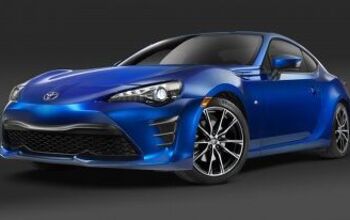
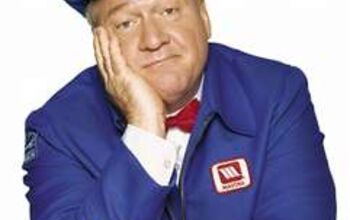
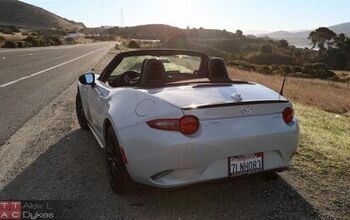
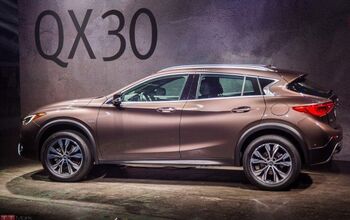
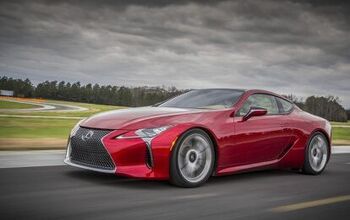










Comments
Join the conversation
I thought we already had this article? Is this article just here for the clicks?
This comment is awaiting moderation